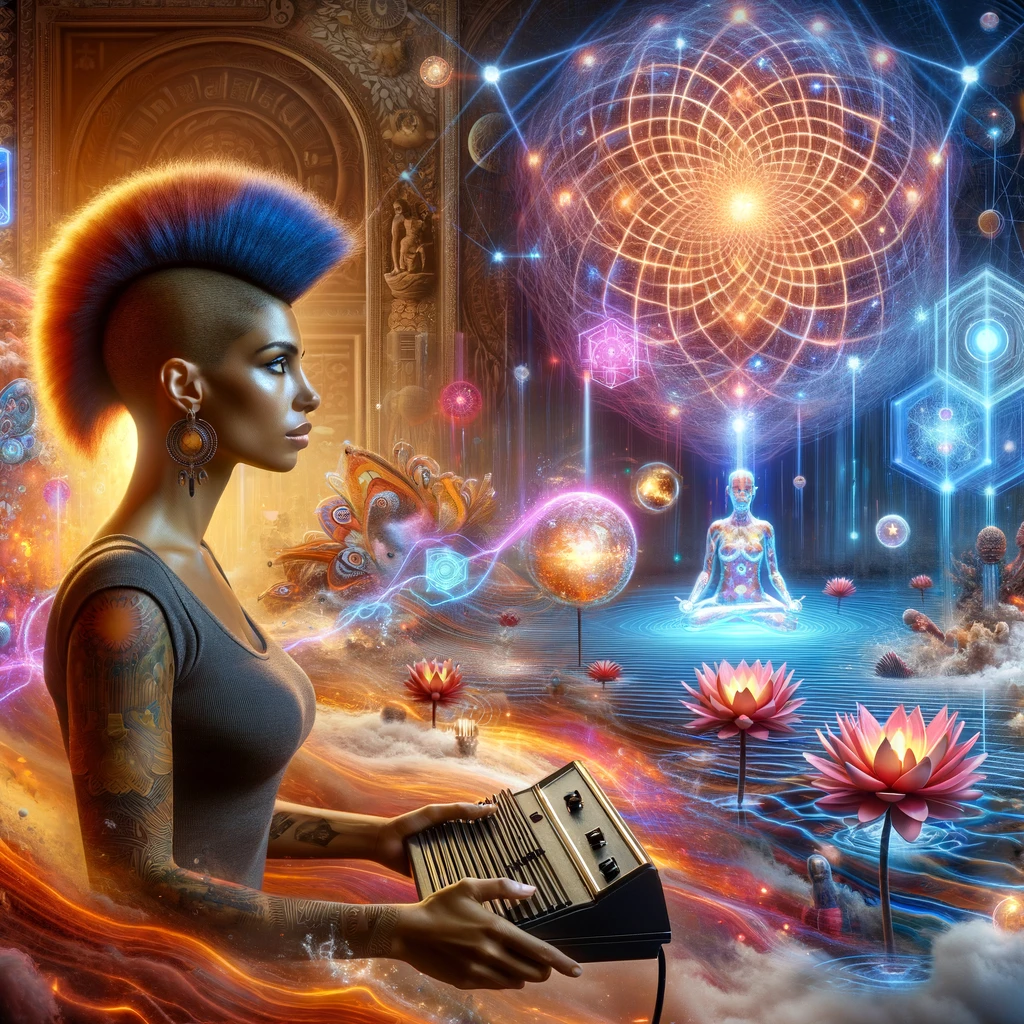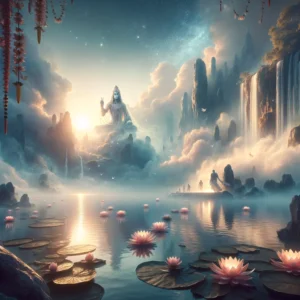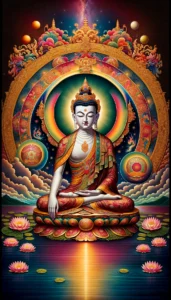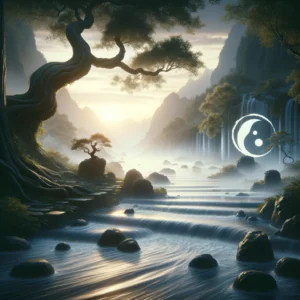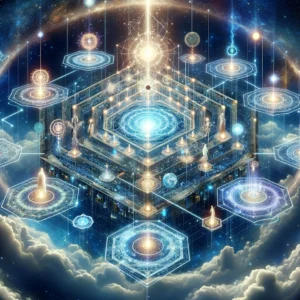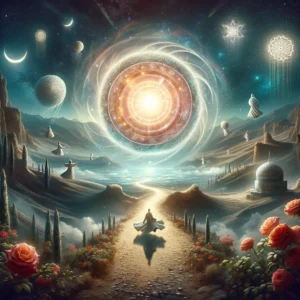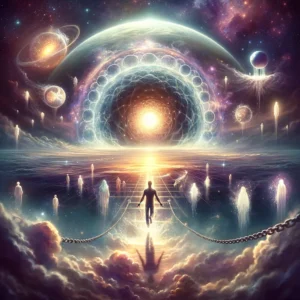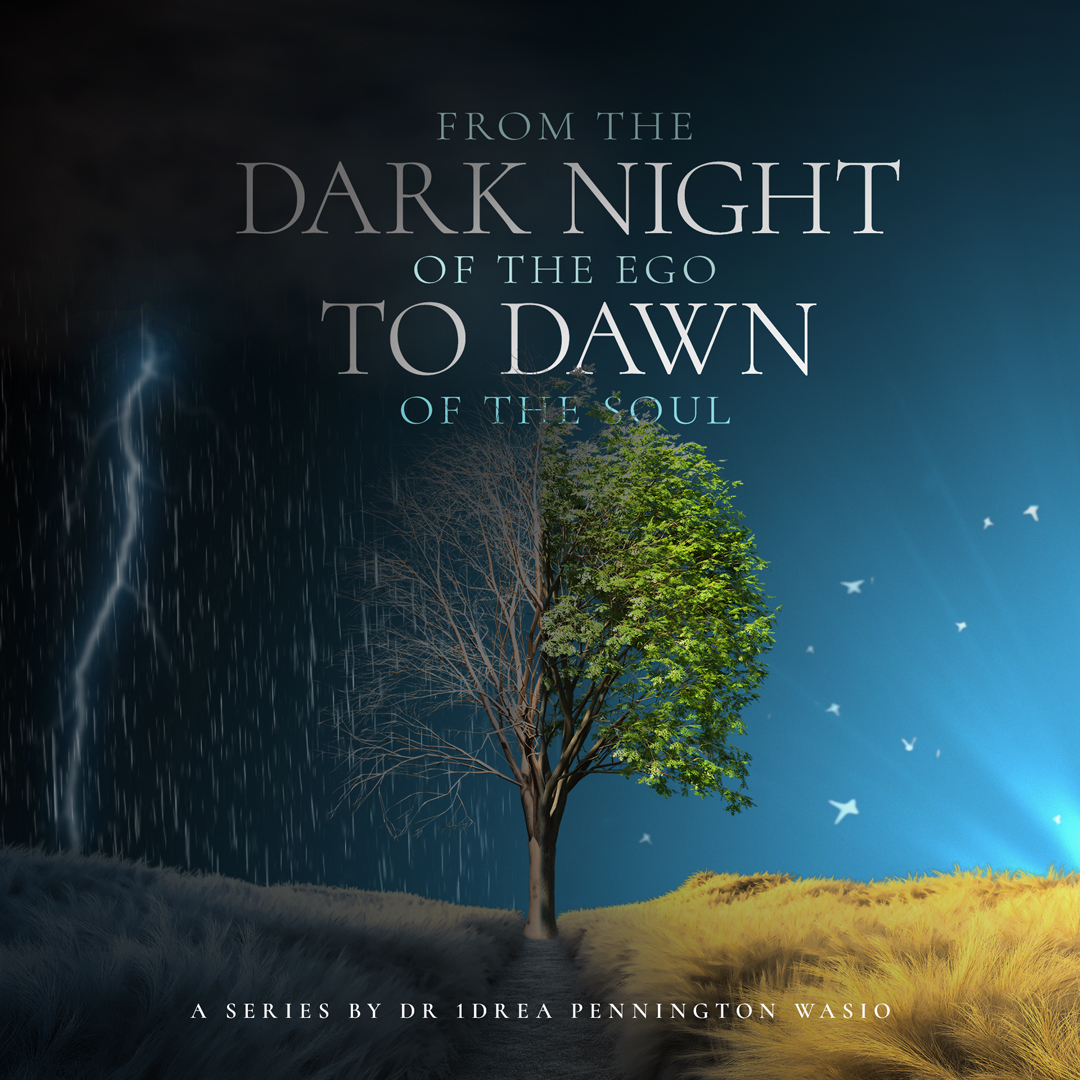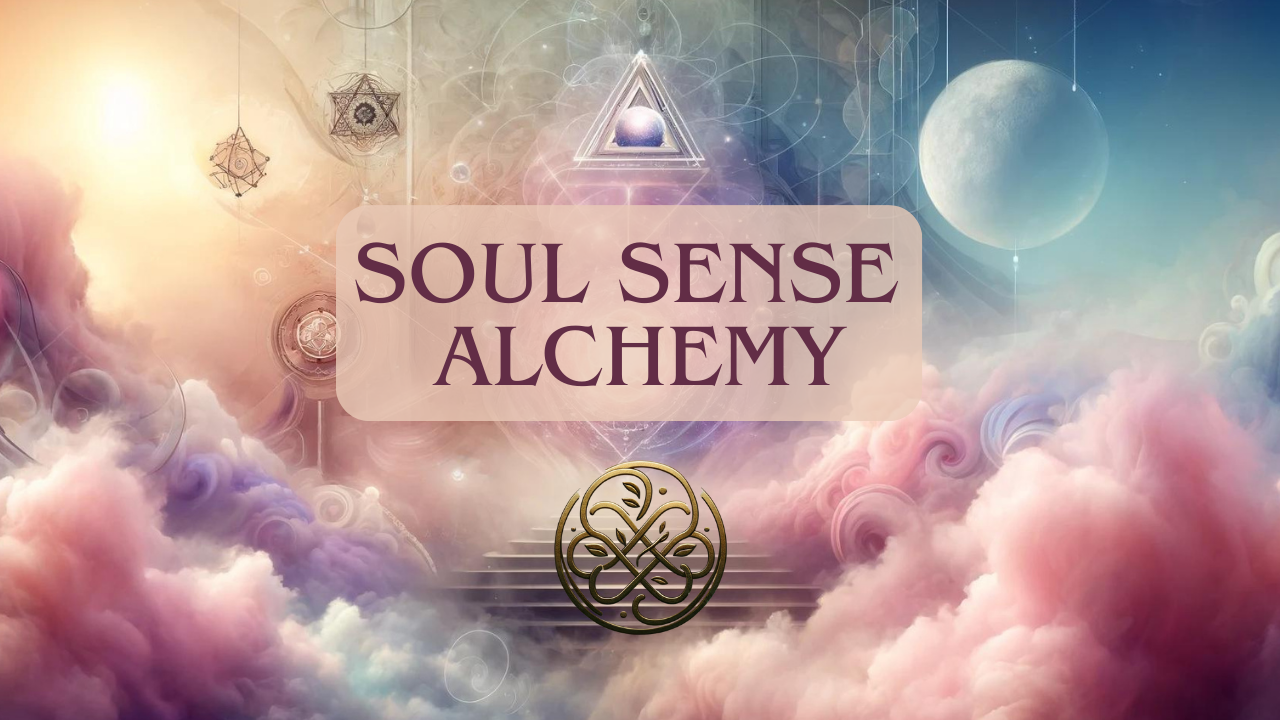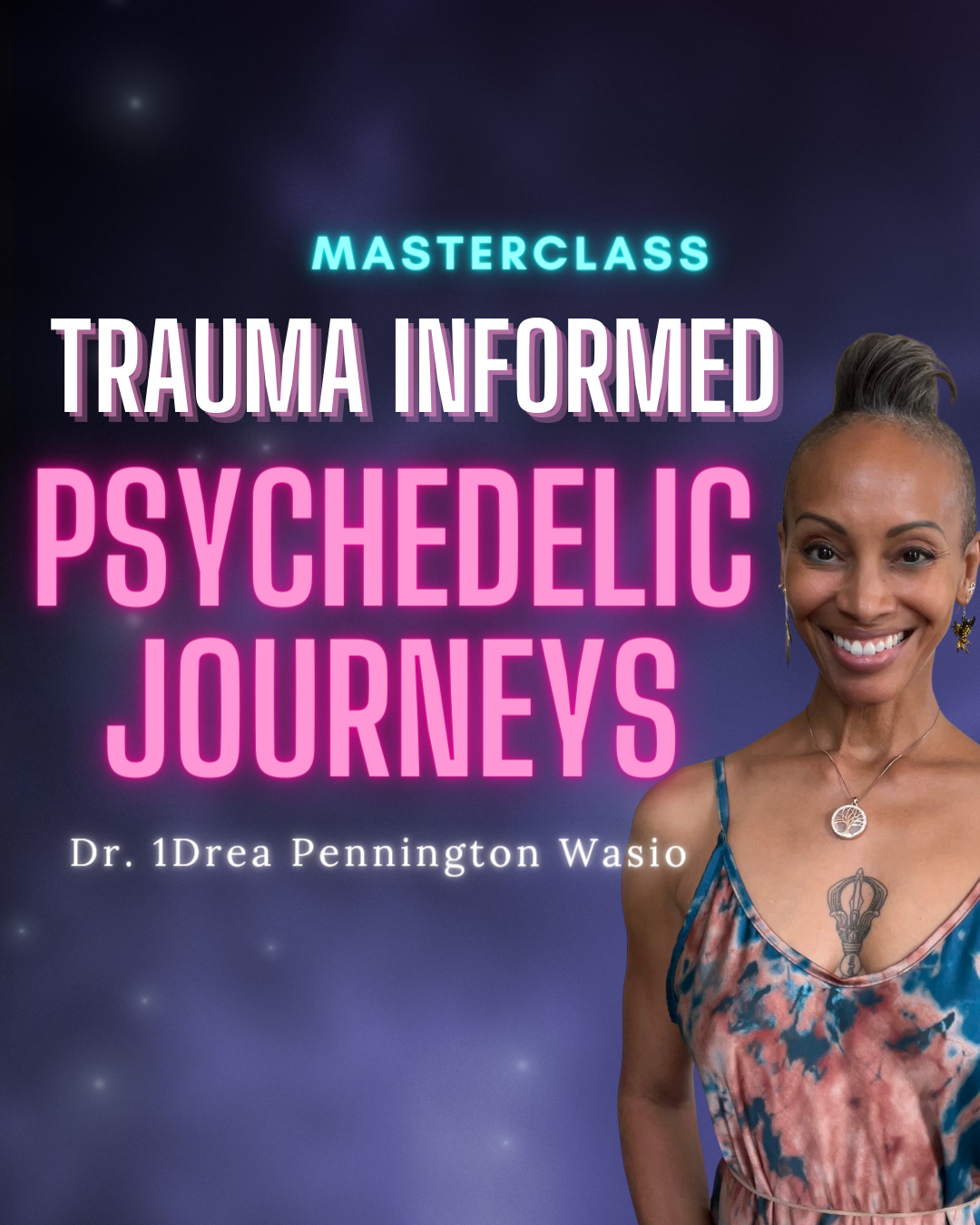Embarking on a nostalgic journey back to my Midwestern roots in the ’70s, my childhood was illuminated by the flickering lights and electronic beeps of video game arcades. An Atari console was my gateway to countless adventures, from navigating the pixelated mazes of Pac-Man and Ms. Pac-Man to leaping across roads in Frogger and jousting in the aerial arenas of Joust. These games were more than mere pastimes; they introduced me to a world where progression from one level to the next was a thrilling quest, where each loss was not a failure but a step towards mastery. Side by side with my best friend Alison, our 10-speed bikes would carry us to our local 7-Eleven, where quarters transformed into keys to other worlds—Pole Position, Galaga, a realm where every challenge was a chance to learn and grow.
As years folded into decades, I navigated life’s milestones with a similar spirit—education, career, accolades. Yet, beneath the surface achievements lay a profound sense of unfulfillment. The societal blueprint of success, I realized, couldn’t dictate the essence of my journey. It became clear that life wasn’t about conforming to external expectations but about discovering and embodying our true roles in this expansive game of existence.
This quest for meaning catapulted me into a transformative experience in 2005. Despite professional successes, including appearances on the Oprah Winfrey Show and the publication of my first book, an inner void persisted. It was during a retreat to the South of France that a spiritual crisis became a gateway to awakening. In a moment of complete surrender, I transcended the confines of my ego and glimpsed the vastness of our true nature. I journeyed through a tunnel of light into a peaceful void, where a life review unveiled the choices leading to my despair. Accompanied by a guide, I received profound insights:
…our purpose on Earth is not to adhere to predefined paths but to forge our own, guided by the essence of our soul.
This vision revealed the cosmos as a source of consciousness, from which individual souls, like droplets of light, embark on earthly incarnations. We incarnate as avatars in this human experience, tasked with navigating life according to our unique terms. My explorations with psychedelics further cemented this understanding, unveiling the fabric of reality as woven from consciousness—energy and information in perpetual dance.
Viewing life’s challenges through this lens, akin to the ghosts in Pac-Man, offers a paradigm shift. While not diminishing the gravity of human suffering, this perspective fosters a deeper awareness of our role as conscious observers and participants in the game of Samsara, where the inherent unsatisfactoriness of existence beckons us towards growth, compassion, and transcendence.
We are, each of us, players in this grand arcade of life, where our actions leave indelible marks on the continuum of consciousness. Acknowledging life as a virtual reality game inspires a reevaluation of our approach to existence. Our quest? To awaken to our true selves, transmute karma, embody spiritual virtues, and, ultimately, contribute to the collective journey towards enlightenment. This vision of life, as a game rich with potential for growth and discovery, now guides me as I navigate the intricate levels of being, ever striving for deeper understanding and unity.
The Concept of 3D Life as Virtual Reality
In exploring the fabric of our existence, the notion that reality itself might be akin to a sophisticated, immersive game is both intriguing and transformative. This perspective isn’t just a philosophical curiosity; it’s supported by a growing body of thought in both spiritual traditions and cutting-edge science. At the heart of this concept is the idea that consciousness—our innermost essence—is not merely a passive observer but the active player navigating the vast, intricate landscape of existence.
Thomas Campbell’s Theory of Everything
Central to understanding reality as a virtual game is Thomas Campbell’s book, “My Big TOE” (Theory of Everything), which posits that the universe is fundamentally a vast information system, and our physical reality is a highly complex simulation, as explained in this video.
According to Campbell:
consciousness is the substrate of all that exists; it’s the player in this grand game, exploring and interacting within a digital landscape designed for growth, learning, and evolution.
Campbell’s work suggests that the rules of the game—the physical laws governing our universe—are merely the parameters set by this cosmic simulation. Our experiences, challenges, and the choices we make are all part of an elaborate setup that enables consciousness to evolve. By engaging with the game consciously, we have the opportunity to expand our awareness, deepen our understanding of the universe, and ultimately realize our interconnectedness with all that is.
Insights from Quantum Physics
Quantum physics offers a scientific lens through which we can view the concept of reality as a virtual game. At the quantum level, particles exist in a state of potentiality, their behaviors influenced by observation—a phenomenon that suggests reality is not as fixed or objective as it appears. This aligns with the idea of a simulated reality, where the act of observation by consciousness can alter the outcome or the state of the game.
Furthermore, the principle of entanglement, where particles remain connected regardless of distance, underscores the interconnectedness of all things, hinting at a unified field of consciousness that permeates and orchestrates the simulation. These quantum phenomena reveal a universe that’s more fluid and malleable than the solid, deterministic world our senses perceive, suggesting that, on a fundamental level, reality is shaped by consciousness.
Playing the Game of Life
Understanding life as a virtual reality game orchestrated by consciousness offers a radical shift in perspective. It invites us to question the nature of reality, our purpose, and how we interact with the world around us. This viewpoint empowers us to approach life with a sense of curiosity, playfulness, and creativity, recognizing that our thoughts, intentions, and actions contribute to the unfolding narrative of the game.
By embracing this concept, we open ourselves to the possibility of growth and transformation, leveraging the challenges and opportunities of the game to evolve as individuals and as a collective consciousness. In “Life as the Ultimate Arcade,” each moment becomes an opportunity to explore, learn, and co-create, with consciousness at the helm, guiding us through the myriad levels of this extraordinary game called life.
This understanding of reality, supported by insights from both spiritual wisdom and quantum physics, invites us to engage with our existence in a profoundly new way. It challenges us to transcend our perceived limitations, to discover our true potential, and to play our part in the cosmic dance of consciousness with awareness, compassion, and joy.
Expanding on the concept of reality as a virtual reality game, we can draw further insights from two influential figures: Bruce Lipton, a renowned cell biologist, and Florence Scovel Shinn, an early 20th-century author known for her metaphysical writings. Their work offers complementary perspectives that deepen our understanding of how consciousness interacts with the fabric of reality.
Insights from Bruce Lipton: Biology and Belief
Bruce Lipton, a pioneer in the field of epigenetics, challenges traditional notions of biological determinism with his assertion that beliefs and perceptions can alter cellular function. According to Lipton, the environment, interpreted through our perceptions, can modify the behavior of our cells and, by extension, our entire reality. Bruce often references the movie The Matrix to illustrate this point, suggesting that, similar to the film, we live in a reality shaped by our beliefs and perceptions. In this “matrix,” our consciousness acts as the programmer, with the power to change the code—our beliefs and perceptions—thereby transforming our physical and experiential world.

Florence Scovel Shinn: The Game of Life and How to Play It
Florence Scovel Shinn’s seminal work, The Game of Life and How to Play It, presents life as a game governed by spiritual laws, where our thoughts, words, and beliefs shape our experiences. Shinn emphasized the power of positive thinking, affirmations, and the law of attraction long before these concepts became widely known in popular culture.

Shinn advocated for a conscious engagement with these principles, suggesting that:
by aligning our thoughts and actions with the highest good, we can manifest success, health, and happiness.
Her work is a testament to the idea that we are not mere participants in the game of life but active creators, capable of shaping our destiny through the power of our consciousness.
Integrating Insights into the Virtual Reality Game
Both Lipton and Shinn offer valuable strategies for players of “Life as the Ultimate Arcade” to navigate the game more effectively. By understanding the biological basis of how our perceptions shape our reality (Lipton) and applying the metaphysical principles that govern the game (Shinn), players can engage more consciously with the challenges and opportunities presented in the game of life.
Incorporating these insights into our daily play encourages us to view life’s difficulties as opportunities for growth, to use the power of our consciousness to shift our experiences, and to approach the game with a sense of empowerment and creativity. The teachings of Lipton and Shinn remind us that, in the virtual reality game of life, we hold the controller, and with awareness, intention, and spiritual wisdom, we can navigate the game towards fulfillment, joy, and ultimate awakening.
Spiritual Traditions and the Virtual Reality Metaphor
The metaphor of life as a virtual reality game resonates deeply with teachings from various spiritual traditions. These traditions have long posited that the world we experience through our senses, while seemingly real and solid, is in fact a more malleable and illusionary construct than we might initially believe. By exploring how different spiritual paths articulate this concept, we can gain a broader understanding of the virtual reality metaphor and its profound implications for our journey toward awakening and enlightenment.
Hinduism and Maya
In Hindu philosophy, the concept of Maya is central to understanding the nature of reality. Maya is often translated as “illusion,” referring to the way in which we perceive the world—a complex interplay of forms and phenomena that veil the underlying unity and truth of Brahman, the ultimate reality. The Bhagavad Gita and the Upanishads teach that the world we navigate is a divine play (Lila) of consciousness, encouraging seekers to look beyond appearances and recognize the spiritual essence that pervades all things.
Buddhism and The Nature of Reality
Buddhism offers the concept of Samsara, the cycle of birth, death, and rebirth, as a kind of game the mind plays, trapping us in a cycle of suffering due to ignorance and desire. The teachings on Emptiness (Shunyata) further elucidate the virtual nature of phenomena, revealing that nothing possesses inherent, independent existence but arises in dependence on a web of interconnections. This understanding invites practitioners to liberate themselves from the grasp of illusory appearances and awaken to the true nature of reality, beyond the confines of the game.
Taoism and The Flow of the Dao
Taoism emphasizes the importance of aligning with the Dao, or the Way, a principle that signifies the fundamental order of the universe. The Dao De Jing suggests that the material world is a manifestation of the Dao, ever-changing and flowing, much like the dynamics of a virtual reality. By living in harmony with the Dao, adherents learn to navigate the game of life with ease and grace, appreciating the impermanent and interconnected nature of all things.
Kabbalah and The Structure of the Cosmos
Kabbalah, a mystical tradition within Judaism, describes the cosmos as emanating from the infinite light of the Ein Sof through a complex structure of sephirot or attributes. This cosmological framework can be likened to the levels or stages of a virtual reality game, with each sephirah representing different aspects of divine emanation that players (souls) engage with and ascend through on their journey back to the source.
Sufism and The Journey of the Soul
In Sufism, the mystical branch of Islam, life is viewed as a journey of the soul back to its divine origin. The world is seen as a temporary abode, a place of testing and purification, much like the levels of a game that the soul must navigate with love, devotion, and surrender to the will of Allah. The poetry of Rumi and other Sufi mystics often reflects this view, portraying the soul’s journey as a divine romance, with each experience and challenge designed to bring the seeker closer to spiritual.
Christian Mysticism and The Journey Through the Dark Night
Adding the Christian mystic perspective enriches our understanding of the virtual reality metaphor with the profound insights of San Juan de la Cruz, also known as Saint John of the Cross. His seminal poem, “Noche Oscura” (The Dark Night), illuminates the spiritual journey as a quest marked by profound trials, purifications, and ultimately, union with the Divine.
The Dark Night as a Quest for Divine Union
In Christian mysticism, the concept of the “dark night of the ego” describes a period of spiritual desolation, purification, and detachment from the world’s distractions. This dark night is not a punishment but a necessary phase of spiritual deepening, leading the soul to a more intimate union with God. It represents the ultimate challenge or “boss fight” in the game of spiritual awakening, where the ego is stripped away, revealing the luminous essence of the soul.
For San Juan de la Cruz, the dark night is a passage through the wilderness of the soul’s deepest longings, where all sensory consolations are withdrawn, and the soul feels abandoned. Yet, this apparent abandonment is a divine strategy, a loving act by God to draw the soul into a closer embrace. It is in the darkest night that the light of Christ consciousness—a profound awakening to unconditional love, compassion, and unity with all beings—begins to dawn.
Viewing San Juan de la Cruz’s teachings through the lens of the virtual reality metaphor, we see the spiritual journey as a game designed with ultimate love and wisdom. The challenges and trials we face, symbolized by the dark night, are not obstacles but invitations to deeper trust, surrender, and alignment with the Divine will.
The quest for union with the Divine, or awakening to Christ consciousness, mirrors the game’s objective: to transcend the limited perception of the ego and realize our true nature as expressions of divine love. In this context, the dark night becomes a crucial level in the game, one that tests our faith, purifies our intentions, and strengthens our connection to the source.
The Universal Quest for Awakening
The universal nature of the quest for spiritual awakening underscores that, regardless of the spiritual tradition, the journey involves navigating challenges, enduring periods of purification, and emerging with a deeper, more unified consciousness.
Integrating the Metaphor into Spiritual Practice
The virtual reality metaphor provides a unifying lens through which to view the teachings of these diverse spiritual traditions. By understanding life as a game—a divine play of consciousness within an illusory, yet purposeful, matrix—we are invited to engage with our spiritual practices more playfully and consciously. This perspective encourages us to navigate the challenges of life with detachment, wisdom, and compassion, recognizing that our ultimate goal is to awaken to our true nature, beyond the game.
In embracing this metaphor, we find common ground among the world’s spiritual traditions, each offering unique insights and methods for transcending the illusion and realizing the profound interconnectedness and divinity of all existence.
My Personal Insights and Experiences
The extraordinary near-death experience in 2005 revealed to me the universe as a source of consciousness from which we, as individual souls, embark on our earthly incarnations. Like droplets of light descending from a radiant sun, we incarnate into this realm to live life on our own terms, to learn, grow, and ultimately awaken to our true nature. This vision has since served as a cornerstone of my understanding of reality, transforming my perception of life’s challenges and opportunities.
Viewing life as a virtual reality game, where we are both the players and the creators, has imbued my existence with a sense of freedom and creativity that I had never known before. This perspective allows me to navigate the ‘game’ with a playful spirit, seeing each moment as an opportunity to choose, to create, and to evolve. It has taught me to embrace change and impermanence, to find joy in the unfolding of life, and to approach each day as an adventure filled with endless possibilities for growth and discovery.
My personal revelations align beautifully with the concept of life as a game—a metaphor that encapsulates the essence of our journey as conscious beings playing in the vast, intricate field of existence. This understanding encourages us to explore the depths of our being, to transcend the limitations imposed by our ego, and to engage with life in a way that is both meaningful and liberating. By embracing this game-like nature of existence, we open ourselves to a more profound engagement with the world, one that is rooted in compassion, mindfulness, and an unwavering quest for enlightenment.
As I continue on my path, these insights serve as a guiding light, reminding me that we are here to discover who we truly are, to express our unique essence, and to contribute to the collective awakening of humanity. In this grand, cosmic arcade, each of us has the power to shape our destiny, to unlock the mysteries of consciousness, and to play our part in the divine dance of creation.
The Benefits of Viewing Life as a Game
Adopting the perspective that life is akin to a sophisticated, immersive game where our consciousness navigates through the avatar of our physical existence offers profound benefits. This viewpoint is not merely a philosophical curiosity but a practical approach that can transform our everyday experiences, making our journey through life more joyful, meaningful, and liberating.
Liberation from Personalization
One of the immediate benefits of viewing life as a game is the liberation from taking life too personally. When we understand that challenges, setbacks, and even successes are part of the game’s design to facilitate our growth and evolution, we detach from intense emotional reactions and judgments. This detachment allows us to face life’s ups and downs with grace and a sense of humor, knowing that each experience is an opportunity to learn and advance to the next level of our spiritual and personal development.
Embracing Change and Impermanence
The game perspective naturally incorporates the principles of change and impermanence. Just as in any game, scenarios evolve, levels change, and new challenges arise. Recognizing this fluidity helps us embrace change rather than resist it, understanding that impermanence is a fundamental aspect of the game. This awareness encourages us to live more fully in the present, appreciating the transient beauty of our experiences without clinging to them.
Finding Joy and Playfulness
Viewing life as a game reintroduces an element of playfulness into our daily lives. It invites us to experiment, take risks, and explore the vast landscape of existence with curiosity and wonder. This playful attitude enhances our creativity, resilience, and ability to find joy in simple moments, transforming mundane tasks into engaging quests and challenges into intriguing puzzles to solve.
Infusing Life with Magic and Fun
Adopting the game perspective can infuse our lives with a sense of magic and fun, reminding us that we are here to enjoy the journey as much as to reach any particular destination. It opens our eyes to the magic that surrounds us—synchronicities, moments of connection, and the beauty of nature—inviting us to engage with the world in a more vibrant and heartfelt way.
Rooted in Our True Nature
At the core of this perspective is the recognition of our true nature, whether understood as Buddha nature in Buddhism or Brahman consciousness in Vedanta. Remembering that we are, at our essence, pure consciousness playing through the avatars of our lives helps maintain equanimity amidst the “muck” of life. It serves as a grounding reminder that beyond the roles we play and the challenges we face, we are expressions of something far more profound and eternal.
Conclusion
Viewing life as a game is a transformative perspective that brings liberation, joy, and depth to our human experience. It allows us to navigate the complexities of life with a lighter heart, resilience, and a deeper sense of purpose. By remembering our true nature and embracing the game’s challenges with playfulness and creativity, we can infuse our lives with magic and fun, making each moment an opportunity for awakening and growth. This approach doesn’t diminish the seriousness of life’s challenges but offers a way to engage with them more effectively, with a spirit of adventure and openness to the lessons they hold.
Engaging with the Game: Practical Tips for Viewing Life as a Virtual Reality
Approaching life as a virtual reality game, such as my approach, “The Bodhisattva Game,” a new booklet I’m writing, which offers a profound shift in perspective, empowering you to navigate your journey with intention, wisdom, and compassion. Whether you’re on the Buddhist path like myself, embracing the Bodhisattva vow, or you resonate more with the artist, healer, or any other role that aligns with your dharma, here are practical tips to help you actively engage with the game of life, shaping it according to your deepest values and aspirations.
Choose Your Game
- Identify Your Role: Reflect on what deeply resonates with you. Are you drawn to the path of a Bodhisattva, an artist, a healer, or another role? Your role should reflect your passions, talents, and the way you wish to contribute to the world.
- Name Your Game: Personalize the name of your game. By giving it a name—whether it’s the Bodhisattva Game, the Artist’s Quest, the Healer’s Journey, or another title—you claim ownership of your path and affirm your commitment to play by your chosen rules and objectives.
Set Up Your Avatar
- Define Your Attributes: Just like customizing an avatar in a video game, identify the qualities and attributes you want to embody. Do you need more compassion, creativity, resilience? Choose attributes that align with your role and goals.
- Equip Your Inventory: Consider what tools, practices, or knowledge you need to navigate your game effectively. Meditation, artistic expression, service to others, and continuous learning might be essential items in your inventory.
Understand the Rules
Every virtual reality has a rule set.
- Learn from Spiritual Traditions: Draw insights from spiritual traditions that resonate with you, understanding how concepts like karma, impermanence, and interconnectedness play into the rules of your game.
- Adapt to Change: Recognize that the game’s landscape will shift, presenting new challenges and opportunities. Stay adaptable, knowing that change is an integral part of the game’s design for growth.
Daily Quests and Challenges
- Set Daily Intentions: Each morning, decide on your quest or main objective for the day. It could be as simple as performing an act of kindness, dedicating an hour to your craft, or practicing mindfulness.
- Face Challenges with Equanimity: View obstacles as part of the game, opportunities to apply your attributes and grow. Approach them with a calm mind and a problem-solving attitude.
Unlocking Achievements
- Celebrate Milestones: Acknowledge your progress, no matter how small. Completed a project, deepened your practice, helped someone in need? These are all achievements in your game.
- Reflect and Journal: Keep a journal of your journey, noting achievements, insights, and areas for growth. This reflection can provide clarity and motivation to continue playing your game with purpose.
Engage with Your Community
- Find Your Allies: Connect with others who are playing similar games or share your aspirations. They can offer support, inspiration, and camaraderie on your journey.
- Share Your Story: Be open to sharing your experiences, challenges, and successes. Your story can inspire others and provide valuable perspectives for fellow players.
Conclusion
Viewing life as a virtual reality game, tailored to your spiritual path or personal aspirations, transforms the way you engage with the world. It turns life’s challenges into quests for growth, encourages you to develop and use your innate talents, and reminds you of the deeper purpose behind your journey. Whether you’re playing the Bodhisattva Game, the Artist’s Quest, the Healer’s Journey, or another version entirely, remember that the essence of the game is awakening—to your true potential, to deeper compassion, and to your unique role in the unfolding story of the universe.
Enjoying The Grand Arcade of Life
Reflecting on my journey from the pixelated screens of early arcade games to the profound depths unveiled through my work with psychedelics, I’ve come to see life as an intricate, immersive game—a virtual reality where consciousness is both the player and the game designer. This perspective has not only enriched my understanding of existence but has also offered a playful, yet deeply meaningful way to navigate the complexities of life.
The analogy of life as the ultimate arcade game finds resonance not just in my personal experiences but also in the convergence of spiritual wisdom and cutting-edge science. From the teachings of ancient traditions to the revelations of quantum physics and epigenetics, there’s a harmonious message: reality is more malleable, interconnected, and infused with consciousness than our conventional experience suggests. These insights encourage us to question the nature of reality, our role within it, and the power we have to shape it through our beliefs, intentions, and actions.
Integrating these diverse strands of knowledge—spiritual insights from Buddhism, Vedanta, Christian mysticism, alongside discoveries from the realms of quantum physics and biology—provides a robust framework for understanding our existence. It underscores that at our core, we are not merely players navigating a pre-set game but conscious beings capable of influencing the game’s outcome and design. This realization empowers us to approach life with a sense of agency, creativity, and purpose.
And so, as we play this grand game of life, let us remember the lessons learned in those early arcade days and through the profound journeys facilitated by psychedelics. Let us embrace the metaphor of life as the ultimate arcade game, not only to play well but to discover, grow, and contribute to the joy and awakening of all players. By viewing our existence through this lens, we’re invited to explore the infinite possibilities that life offers, engaging with each challenge, quest, and adventure with curiosity, compassion, and a deep appreciation for the interconnectedness of all things.
In conclusion, let us step into the arcade of life with the knowledge that we are both the players and the creators of our reality. Integrating spiritual wisdom, scientific understanding, and personal insights allows us to navigate the game with a sense of wonder, joy, and purpose. As we journey through this grand adventure, may we remember that the ultimate goal is not merely to advance through the levels but to awaken to our true nature, deepen our connection with the cosmos, and contribute to the collective evolution of consciousness. Together, in this vast, cosmic arcade, we are all participants in the beautiful game of awakening.
Download the e-book, The Bodhisattva Game, and create your own quests!
